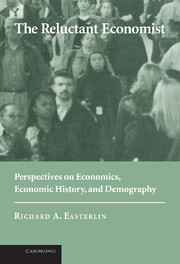Book contents
3 - Is Economic Growth Creating a New Postmaterialistic Society?
Published online by Cambridge University Press: 03 December 2009
Summary
We are currently in the midst of a revolution in the human condition that is sweeping the world. Most people today are better fed, clothed, and housed than their predecessors two centuries ago. They are healthier, live longer, and are better educated. Women's lives are less centered on reproduction, and political democracy has gained a foothold. Western Europe and its offshoots have been the leaders of this advance, but in the twentieth century most of the less developed countries have joined, including most recently the newly emerging nations of sub-Saharan Africa. The picture is not one of unmitigated universal progress, but it is unquestionably the greatest advance in the condition of the world's population ever achieved in such a brief span of time. Indeed, it is so great that some analysts see today's leaders in human development as on the verge of a new postmaterialistic world.
Most people are only dimly aware of this transformation in the human condition because economic and social revolutions, unlike political ones, are not abrupt upheavals and become apparent only over long periods of often a half century or more. Moreover, the popular media, to which we are daily exposed, inevitably highlight short term and negative changes such as famine, financial crisis, and epidemic rather than dwelling on gradual, longer-term achievements, such as the worldwide eradication of smallpox, the successful immunization of 80 percent of the world's children against the six major vaccine-preventable childhood diseases, or the remarkable establishment and preservation of political democracy in India – a nation accounting for a sixth of the world's population.
- Type
- Chapter
- Information
- The Reluctant EconomistPerspectives on Economics, Economic History, and Demography, pp. 32 - 54Publisher: Cambridge University PressPrint publication year: 2004



